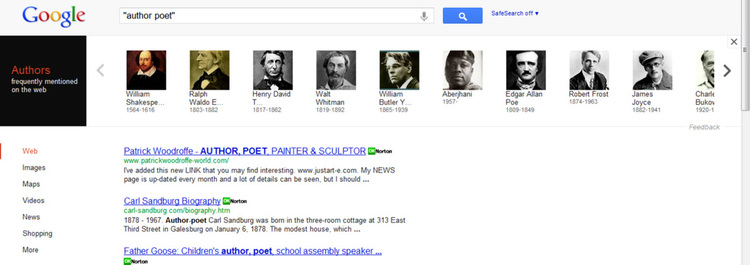The Writer as a Working Scribe...
"I place my fingers
upon these keys
typing 2,000 dreams per minute
and naked of spirit
dance forth my cosmic vortex
upon this crucifix called language..."
--Aberjhani, from Visions of a Skylark Dressed in Black
About The Author
Whether as a writer of fiction, poetry, journalism, history, or essays, Aberjhani’s writings often unite genres and cross borders to express the joys and dilemmas of the human condition.
Literary Memoir, Fiction, and Engaging History
His literary memoirs, like Dreams of the Immortal City Savannah, and fiction, like the controversial speculative novel Christmas When Music Almost Killed the World, have produced bold engrossing experiments in contemporary writing. In addition, the scope of his historical vision is an expansive one which encompasses his co-authorship of the multiple-award-winning Encyclopedia of the Harlem Renaissance, editing the Civil War Savannah Book Series, and writing the ongoing series of Text and Meaning essays that explore the significance of classic literary narratives and era-shaping political documents.
Poetry & Interpretive Journalism
Aberjhani’s works in poetry cover a wide range of forms and subject matter. From classically-styled chains of haiku such as those featured in The River of Winged Dreams and the boldly-stated “Ode to the Good Black Boots that Served My Soul So Well” first published in Poetry Life & Times, to the ekphrastic verses in ELEMENTAL The Power of Illuminated Love, and the celebrated free-flowing lines that make up Visions of a Skylark Dressed in Black, his unique voice has been described as simultaneously archetypal and contemporary.
His prolific output as an interpretive journalist has produced some of the most thought-provoking articles on some of the more urgent topics confronting humanity in the 21st century. Among these are the challenges communities around the world currently face as they adapt to major shifts in cultural, racial, and generational demographics. He has lent considerable insights to outlining the dynamics of the impact of escalating conflicts between nations and terrorists, sketching compelling literary portraits of major cultural artists, confronting the painful realities of the “New Jim Crow” and mass incarceration, and documenting many of the most historical events of the current era.
His prolific output as an interpretive journalist has produced some of the most thought-provoking articles on some of the more urgent topics confronting humanity in the 21st century. Among these are the challenges communities around the world currently face as they adapt to major shifts in cultural, racial, and generational demographics. He has lent considerable insights to outlining the dynamics of the impact of escalating conflicts between nations and terrorists, sketching compelling literary portraits of major cultural artists, confronting the painful realities of the “New Jim Crow” and mass incarceration, and documenting many of the most historical events of the current era.
The Author & The Twittersphere
An Advocacy & Philosophy of Compassion
In the tradition of such artist-advocates as Maya Angelou,
James Baldwin, Amiri Baraka, Albert Camus, Ruby Dee, W.E.B. Du Bois, Richard
Wright, and many others noted for their powerful commitment to humanity’s struggles,
the author’s industriousness is not restricted to the printed or digital page. His
public advocacy on behalf of those struggling for basic human rights around the
world began with his founding of Creative
Thinkers International in 2007 and expanded when he signed the Charter for Compassion in
2014.
Aberjhani is not a philosopher in any strict professional or academic sense of the word. Various commentators have nevertheless observed that many of his more creative literary works draw intensity and clarity from philosophically-informed aesthetic and spiritual concepts. This may be most evident in the Guerrilla Decontextualization website, the Journey and the Rainbow website, and his Tao of the Rainbow blog. Moreover, quotes from his writings frequently appear on web pages designed to help inspire and empower people from diverse ethnic, religious, and national backgrounds.
Aberjhani is not a philosopher in any strict professional or academic sense of the word. Various commentators have nevertheless observed that many of his more creative literary works draw intensity and clarity from philosophically-informed aesthetic and spiritual concepts. This may be most evident in the Guerrilla Decontextualization website, the Journey and the Rainbow website, and his Tao of the Rainbow blog. Moreover, quotes from his writings frequently appear on web pages designed to help inspire and empower people from diverse ethnic, religious, and national backgrounds.
 "Authors frequently mentioned on the web" screenshot with John Zeuli photograph of Aberjhani in the center of literary icons. Other authors included are: William Shakespeare, Ralph Waldo Emerson, Henry David Thoreau, Walt Whitman, William Butler Yeats, Edgar Allen Poe, Robert Frost, James Joyce, and Charles Bukowski.
"Authors frequently mentioned on the web" screenshot with John Zeuli photograph of Aberjhani in the center of literary icons. Other authors included are: William Shakespeare, Ralph Waldo Emerson, Henry David Thoreau, Walt Whitman, William Butler Yeats, Edgar Allen Poe, Robert Frost, James Joyce, and Charles Bukowski.